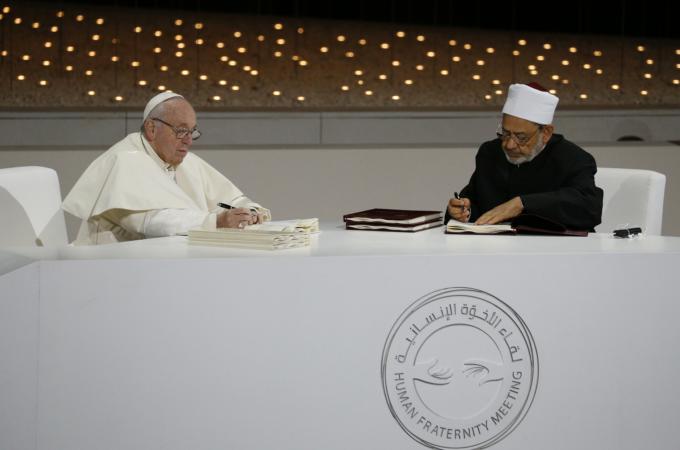National Catholic-Muslim Dialogue
The National Catholic/Muslim Dialogue (NCMD), sponsored on the Catholic side by the U.S. Conference of Catholic Bishops' and its Office for Ecumenical and Interreligious Affairs, and on the Muslim side by the Islamic Society of North America, is the successor to three Regional Dialogues (West Coast, Midwest, and Mid-Atlantic) that began about 20 years ago and continue to meet annually.
NCMD met in Chicago at the Catholic Theological Union on March 25-26 for its fourth meeting, guided by its co-chairs Cardinal Blasé Cupich, archbishop of Chicago, and Shaykh Abdool Rahman Khan of Charlotte, North Carolina. It was the fourth meeting of the NCMD, which has approximately a dozen participants on both sides. The focus of this meeting was to find a way forward as to how Catholic-Muslim dialogue can be expanded and involve more people in the country today. The increasing instances of anti-Muslim activities in the U.S. and around the world impel people of both faiths to promote acceptance and respect on the part of their own members in particular and the country at large.
The meeting fittingly took place on the feast of the Annunciation of the angel Gabriel to Mary, a holy day for both Catholics and Muslims. The members began the dialogue by sharing some of their perceptions about Mary with one another and reflecting on the question "How is Mary a model for us all?" One of the Catholic participants, Msgr. Alexei Smith, reflected that "Our Muslim brothers and sisters have largely the same narrative as we Catholics do regarding Mary. Most of our church members are not aware of this."
In the following session on ''Resourcing our Muslim and Catholic Communities,'' Muslim participant from Southern California, Maria Khani, observed that we need to start a program for kids, bringing them together in a friendly environment, where they interact with and learn about each other, e.g. home-dinners during Ramadan and Christmas. The result, she noted, is that strangers evolve into friends.
As for adults, Maria promotes Scripture study groups, so they learn more about the Qur'an and Bible, and the authority of each within their religions. She reported that there are now about 30 such study groups in the U.S.
"We do 'basic beliefs' in Muslim and Christian traditions, which motivates the participants to do more studies. The aim is to hear the other explain how they understand their own faith and the difference their faith has made in their lives," said Khani.
In an evening presentation open to the public and focusing on "A Document on Human Fraternity for World Peace and Living Together" signed on Feb. 4 in Abu Dhabi by Pope Francis and Sheik el-Tayeb, a leading religious authority for many Sunni Muslims around the world, Cardinal Cupich observed that "Our two faith traditions are not completely at odds. We are brothers and sisters of the one true God. We must cross over the murky waters of fear to promote peace and justice. We must stop the shedding of innocent blood that the world is experiencing. We must cultivate fraternity at every level of society. Love of one's neighbor is inseparable from love of God."
"How do we do this?" asked Cardinal Cupich. "By promoting a culture of encounter and fraternity, which involves three fundamental steps: 1) Establishing and nurturing dialogue. 2) Striving for cooperation. 3) Working towards mutual understanding of one another's beliefs and practices."
In the coming year, a Task Force committee will focus on creating a strategic plan for constructive initiatives or programs that could be implemented in the different regions of the country.



















